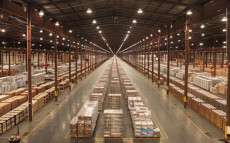- pathfindersAI
- Job Profile
Railroad Brake, Signal, and Switch Operators and Locomotive Firers
Summary
Railroad Brake, Signal, and Switch Operators and Locomotive Firers: An In-Depth Career Overview
What They Do
Railroad Brake, Signal, and Switch Operators and Locomotive Firers are indispensable contributors to the railroad industry, ensuring the seamless and efficient movement of trains across extensive rail networks. These professionals undertake a myriad of tasks that revolve around the safe and timely operation of trains. They play a pivotal role in managing the controls and systems that govern train movements, thus ensuring that passengers and cargo reach their destinations without delay or incident. These roles are critical in maintaining the integrity of the nation's rail infrastructure, which serves as a backbone for transportation and commerce.
Job Responsibilities
Individuals in these professions are responsible for an array of tasks that guarantee the optimal performance of trains. Railroad Brake Operators are tasked with applying and releasing train brakes at specified points during a route to ensure safe and controlled train movements. Signal and Switch Operators oversee the signals that indicate track usage and manage track switches to direct trains onto the correct paths. Locomotive Firers, on the other hand, work closely with engineers, monitoring onboard instrumentation, assessing track conditions, and ensuring that the locomotive operates within specified safety parameters. These duties require acute attention to detail and the ability to respond swiftly to changing conditions on the tracks.
Essential Skills
To excel in these roles, individuals must possess a robust set of essential skills. Technical proficiency is paramount, as operators need to be adept at handling sophisticated controls and equipment. Strong problem-solving abilities are necessary to troubleshoot issues and make quick decisions under pressure. Communication skills are vital, as these professionals must coordinate with engineers, conductors, and dispatchers to relay essential information accurately and promptly. Physical stamina and endurance are also critical, given the often demanding nature of the work that may require long hours in various weather conditions. Last but not least, a firm grasp of safety protocols is essential to avert potential hazards and ensure the protection of all personnel and passengers.
Educational Pathways
Embarking on a career as a Railroad Brake, Signal, and Switch Operator or Locomotive Firer typically involves a combination of formal education and on-the-job training. A high school diploma or equivalent is generally required as the minimum educational qualification. Prospective candidates often benefit from courses in mechanical drawing, electronics, and other technical subjects that provide a foundational understanding of the systems they will work with. Many employers offer comprehensive training programs that combine classroom instruction with hands-on practice. These programs cover essential topics such as safety regulations, signal systems, brake operations, and locomotive technology. Additionally, continuous education and certification may be necessary to stay current with technological advancements and regulatory changes in the field.
Career Prospects
The career prospects for Railroad Brake, Signal, and Switch Operators and Locomotive Firers are influenced by the vitality of the transportation sector and the ongoing need for rail infrastructure maintenance and expansion. Employment opportunities are available with freight and passenger rail companies, as well as within the public transportation sector. With experience and additional training, individuals in these roles may advance to positions such as locomotive engineers or transit system supervisors. The median annual wage for these positions reflects the specialized nature of the work and the responsibilities involved, providing a stable and rewarding career path for those passionate about the railroad industry.
Conclusion
In conclusion, a career as a Railroad Brake, Signal, and Switch Operator or Locomotive Firer offers a dynamic and integral role within the railroad industry, marked by a blend of technical skill, critical thinking, and adherence to safety. These professionals are key players in ensuring the reliability and safety of train operations, making them essential to the nation's transportation infrastructure. The path to this career involves a solid educational foundation, rigorous training, and a commitment to ongoing learning. For those who possess the necessary skills and are motivated to engage in a challenging and rewarding field, a career in railroad operations promises both stability and the opportunity for professional growth.
Video
Compensation
| State | Median Salary | Median Hourly | Positions |
|---|---|---|---|
| AL | 48,940 | 23.53 | 390 |
| AZ | 67,030 | 32.23 | 210 |
| AR | * | * | 270 |
| CA | 59,820 | 28.76 | 1,220 |
| CO | 66,610 | 32.02 | 230 |
| FL | 63,260 | 30.41 | 90 |
| IL | 68,940 | 33.15 | 1,460 |
| IN | 52,990 | 25.48 | 40 |
| LA | 59,560 | 28.64 | 380 |
| MD | 66,510 | 31.98 | 70 |
| MA | 82,490 | 39.66 | 320 |
| MI | 48,320 | 23.23 | 180 |
| MS | 73,420 | 35.30 | 120 |
| MO | 62,770 | 30.18 | 530 |
| MT | 78,230 | 37.61 | 180 |
| NE | 67,540 | 32.47 | 440 |
| NJ | 76,800 | 36.92 | 180 |
| NY | 78,770 | 37.87 | 230 |
| NC | 79,050 | 38.01 | 130 |
| OH | 63,780 | 30.66 | 450 |
| PA | 63,880 | 30.71 | 330 |
| SC | 52,030 | 25.02 | 40 |
| TX | 66,950 | 32.19 | 1,860 |
| WA | 66,100 | 31.78 | 310 |
| WV | 62,320 | 29.96 | 120 |
| WI | 62,480 | 30.04 | 120 |
| WY | 48,770 | 23.45 | 270 |
Similar Occupations
In this area you will find other occupations that are close to the one you were viewing in tasks, knowledge and work environment. If the primary job profile you are viewing isn't quite to your liking, take a look around and see what else is available.
Basic and Premium Accounts have more alternative occupations available than the Free account.

Bus and Truck Mechanics and Diesel Engine Specialists - 49-3031.00
Bus and Truck Mechanics and Diesel Engine Specialists inspect, repair, and maintain the mechanical and electrical systems of buses and trucks, ensuring optimal performance and safety. They diagnose issues using diagnostic tools, replace faulty parts, and perform routine maintenance tasks to keep heavy vehicles running efficiently.
-
$58,970/yr
Median Pay -
285,030
Number of Jobs

Hoist and Winch Operators - 53-7041.00
Hoist and Winch Operators are responsible for controlling the movement of heavy machinery and materials using hoists, winches, or other equipment to lift, lower, or pull loads. They ensure the safe and efficient handling of goods in various settings such as construction sites, manufacturing plants, and shipping docks.
-
$55,950/yr
Median Pay -
2,230
Number of Jobs